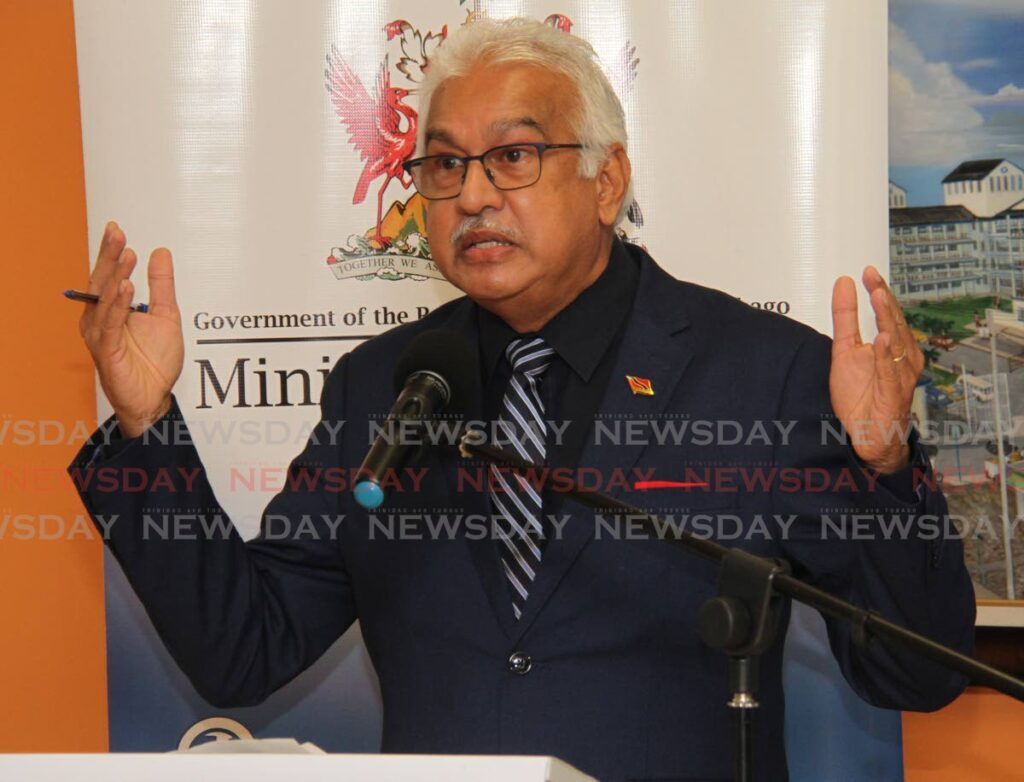Deyalsingh: Two investigations into premature babies deaths at hospital

Health Minister Terrence Deyalsingh expressed condolences to the families of the seven babies who died as a result of a viral infection in the Neonatal Intensive Care Unit (NICU) between April 4-7 in a statement read at the sitting of the House of Representatives on Friday.
“To the bereaved parents, please know that our thoughts are with you during this incredibly difficult time. We share in your grief and extend our deepest sympathies to you and your families,” Deyalsingh said.
Deyalsingh confirmed the seven fatalities in Parliament, saying the NWRHA has taken steps to determine through laboratory testing and risk source analysis the origin of the infections.
“Additionally, as Minister of Health, I have requested that the Caribbean Industrial Research Institute (CARIRI) and the Pan-American Health Organization (PAHO) as relevant subject matter experts be engaged.”
He said the ministry through the office of the chief medical officer would do a separate investigation into the deaths.
Deyalsingh said as of April 7, there were no new infections detected at the hospital and admissions have resumed as of Wednesday.
Sepsis, the infiltration of sterile regions of the body with micro-organisms and the reactions that infection causes could lead to dire and fatal consequences for newborns, whose immune systems have not yet developed. The US-based National Library of Medicine’s website, nih.gov says sepsis is responsible for half a million neonatal deaths a year.
A release from the NWRHA on Wednesday said three organisms – Serratia marcesens, ESBL Klebsiella pneumonia, and Klebsiella aerogenes – were detected at the Neonatal Intensive Care Unit (NICU) by laboratory technicians.
According to the US National Library of Medicine, Serratia marcescens is found in water, soil, animals, insects, plants and even in faecal matter. The microorganisms cause a range of clinical issues in newborns, especially those in neonatal care, which include pneumonia, bloodstream infection, sepsis and meningitis.
Klebsiella pneumoniae and Klebsiella aerogenes can cause a similar list of infections as well as soft tissue infections in newborns.
The medical library said, all of these microorganisms are relatively resistant to antibiotics and are nosocomial or a healthcare-associated infection, meaning that they can be contracted during the process of receiving healthcare.
“Often the specific source of the infection cannot be identified, however, the contaminated hands of healthcare workers are believed to be a major vehicle of its transmission,” the medical library said.
Newsday called NWRHA CEO Anthony Blake but he said he could not respond at the time as he was in a meeting with the investigative team.

Comments
"Deyalsingh: Two investigations into premature babies deaths at hospital"